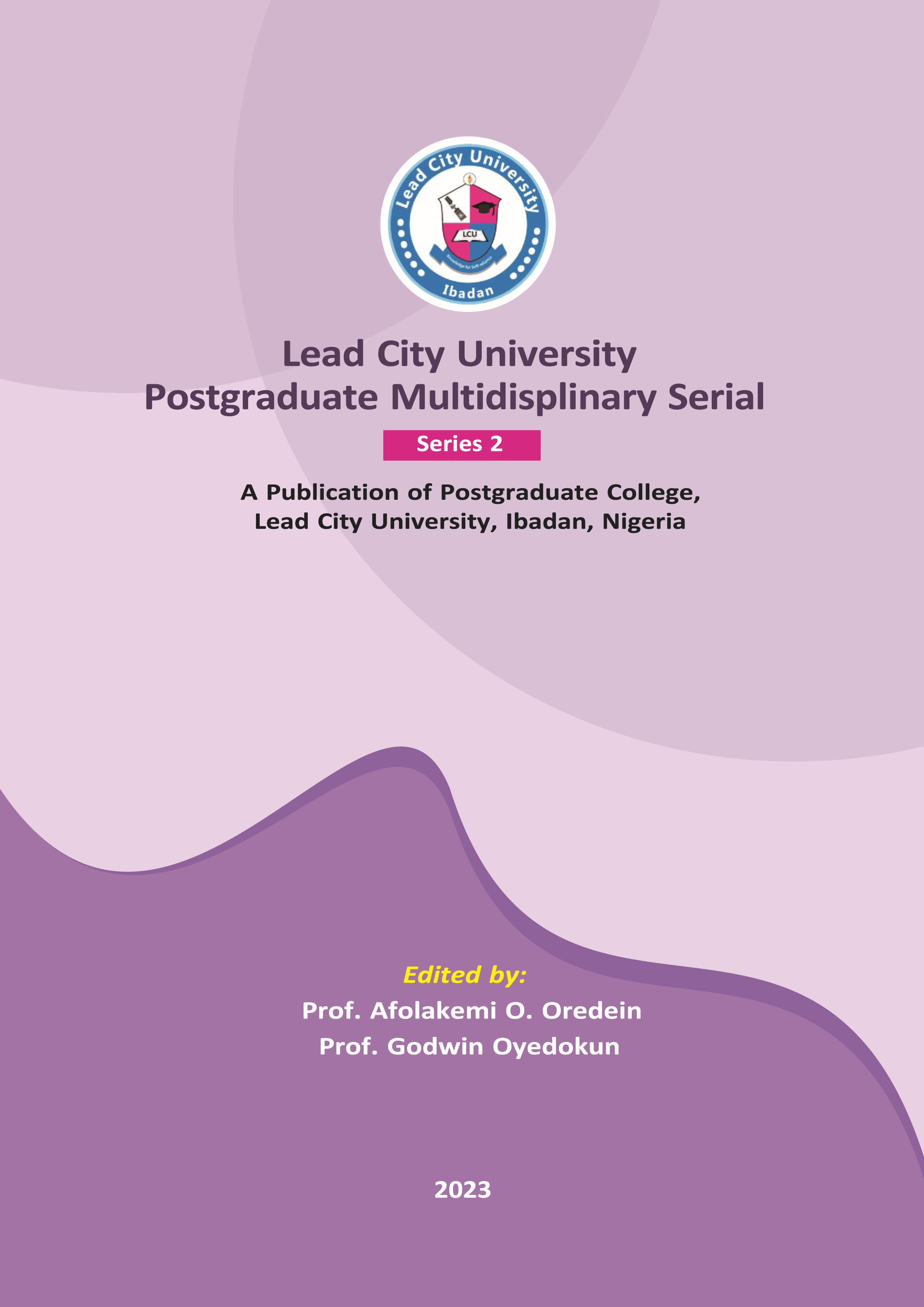Intervention Fund and Academic Performance of Primary School Pupils in Nigeria: Retrospective Study of Education Trust Fund
Keywords:
Intervention Fund, Academic Performance, Education Trust Fund, Primary Schools.Abstract
The study investigated utilisation of Education Trust Fund (ETF) financial resources as
intervention fund and academic performance of public primary school pupils in the South-West,
Nigeria. One research question was raised to guide the study, while two null hypotheses were tested
at 0.05 level of significance. Descriptive survey research design of the ex-post facto type was
adopted for the study. 120 schools out of a total population of 10,576 public primary schools,
selected through purposive and stratified sampling techniques formed the sample. Data generated
from e-library of the Education Trust Fund (ETF), now Tertiary Education Trust Fund (TETFUND)
and Pupils' Academic Performance Proforma (PAPP) were used to collect data. Primary data
obtained from the appropriated and audited accounts of the ETF were used to answer the research
questions. Quantitative data were subjected to statistical analyses with the use of IBM-SPSS
version 20 to test the hypotheses. The results of the Analysis of Variance (ANOVA) indicated that
[F (5, 24) = .707 and P> .05] showing no significant difference in the funds allocated to public
primary schools among the states of the South-West, Nigeria. Results of Pearson's Product Moment
Correlation [r(5, N=720) =.273; P > .05] showed that the relationship between the utilisation of
ETF intervention fund and pupils' academic performance was not significant because P>.05 with a
negative value which showed inverse relationship. It was recommended that government should
include public primary education in the school infrastructure intervention fundingframework to
enhance improved academic performance in public primary schools.

